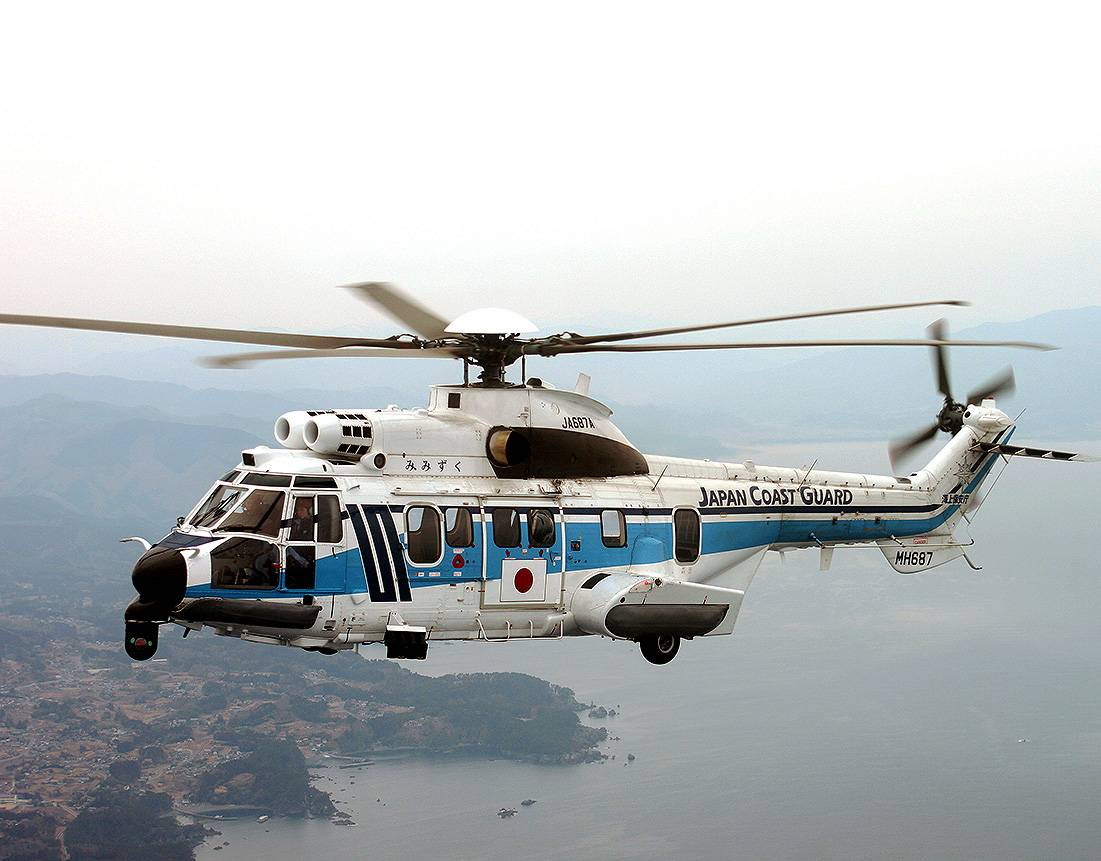
Airbus Helicopters received just four orders for the H225 Super Puma and none at all for its super medium H175 in 2020, but still claimed an increased share of a global civil helicopter order book that was significantly reduced by the Covid-19 pandemic.

The OEM’s annual total of 289 orders was a 20 percent drop from 2019, but it expects its share of the global civil market orderbook to be “close to 70 percent” in terms of units, according to Airbus Helicopters CEO Bruno Even.
Discussing the company’s newly-released annual results with media, Even described 2020 as “a year of resilience and a year of contrast” for the manufacturer, with the results being “in line with what we anticipated in March/April at the beginning of the [Covid-19] crisis.”
The company will likely feel the impact from the drop in bookings in 2022, he added. “[In 2021], [we] will still be supported by the bookings we secured in the previous year,” he said. “We anticipate the beginning of the impact in 2022, and in particular in [Airbus’s production facility in] Marignane, which would start to suffer from the lower level of bookings for the Super Pumas.”
Describing production work in Marignane as “strongly supported by the level of deliveries for the Super Puma,” Even said an order for eight H225M Caracals for the French armed forces — part of the French government’s €15 billion support plan for its aviation industry — is “so important” for the facility. The order is expected to be placed “at the beginning” of 2021.
The four bookings Airbus did receive for the Super Puma in 2020 were all recorded in Japan. Even said other potential customers are postponing their decisions to renew their fleets.
As for the lack of bookings for the H175, Even pointed to the continued downturn in the oil-and-gas market. “Nevertheless, I’m optimistic when it comes to the future of this program,” he said. The type passed 40,000 flight hours with fleet leader NHV in 2020, and Airbus is continuing to work on a de-icing capability for it, due in 2023.
However, despite the low level of bookings for its larger types, Even said the impact of the Covid-19 pandemic is being most felt within the light helicopter lines. The OEM took 124 bookings for these aircraft (102 H125s and 22 H130s), which he said was a direct result of the low level of activity in segments such as tourism and VIP.
The downturn in the light line is similar to that seen following the 2008/09 financial crisis, and the company’s experience there provides cause for optimism, he said. “It’s a segment that could recover quickly,” he said.
Investment in innovation
On the positive side, Even said the increased market share was a result of Airbus’s “investment in innovation” in the form of the new H160 medium, the five-bladed version of the H145, the H135’s increased gross weight, and an upcoming increase in power in the H125.
“Continuously we invest in our products, or launch new products to ensure that at any time we have the right products answering to our customers’ requirements,” he said.
In terms of bookings on these other lines, Airbus received orders for 33 H135s, 84 H145s, and 11 H160s. The remainder of the bookings included two Dauphin family, and 31 NH90s.
Even said he was “not at all disappointed” with the level of activity on the new medium H160, and was particularly pleased to have now secured customers from within each of the sectors it was targeting with the type (VIP, EMS, oil-and-gas, military, and homeland security). The OEM is still expecting certification of the type by the Federal Aviation Administration by the end of the first quarter of this year.
The 300 aircraft Airbus delivered in 2020 was also down from 2019, but only by 10 percent.
“We have seen a low level of [order] cancellation,” said Even. “I think it’s also a sign of trust and a strong message from our customers, despite the difficult context for all the orders placed before the crisis. . . . They continue to need these helicopters; they have continued to fly.”
With the pandemic still causing high case numbers in many places around the world, Even said Airbus’s short-term priority will remain the protection of its employees, as well as ensuring it continues its activities and supporting its customers.
“We don’t expect a recovery in the short term — two or three years — but we are confident about the perspective in the mid-term,” he said. “We will keep our level of R&D investment, despite the [challenging] context.”



